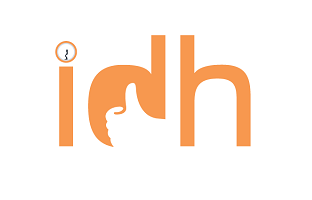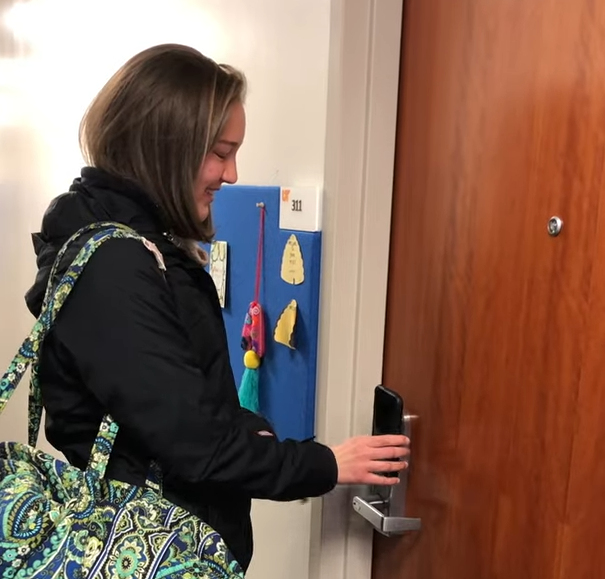As many of you already know, my oldest daughter is starting her second year at the University of Tennessee in Knoxville. Her freshman year was not exactly what we expected, given the impact of COVID-19, but she had a great first year and will be heading back to campus next week to start the training for her new job as a resident assistant.
When I went to visit her in January, UTK had just implemented mobile credentials on campus, so over dinner I asked my daughter and her roommate to download the credentials to the Apple Wallets on their phones. The process was incredibly easy and did not require the face-to-face contact needed for replacing a lost Vol Card. At that time we didn’t know how beneficial that would be once the virus began to limit our interactions. Here’s the after-dinner demonstration:
.
During the same visit, my daughter told me about another freshman living in her dorm. She uses a wheelchair, and she had been leaving her door propped open to allow friends to enter her room without her needing to get into her chair and go to the door. She had fallen asleep and accidentally left her door open all night on more than one occasion.
I’m sure you can imagine my mom-reaction to the lack of security combined with my professional reaction to the potential effects on fire protection (<chills>). I immediately contacted a couple of my coworkers, who brought CBORD and the university into the discussion, and everyone worked together to find a way for the Schlage AD lock on her dorm room to function in a way that would allow convenience, security, and safety. A great example of one of the benefits of electronic access control – flexibility.
If you’re curious about the function and/or benefits of mobile credentials, there’s a new case study that looks at the University of Tennessee’s implementation of these credentials. A few highlights:
- In response to student requests for mobile campus cards, the University of Tennessee, Knoxville, launched contactless student IDs in Apple Wallet in fall 2019.
- Digital student IDs improved the student experience by making transactions and access on campus more seamless. The university realized operational benefits, like a reduction in plastic card distribution. The mobile student IDs also enhanced credential security.
- The University of Tennessee, Knoxville, updated or replaced roughly 5,000 readers throughout campus. For this solution, the university uses Schlage® MT wired multi-technology readers, Schlage AD-400 networked wireless locks and Schlage smart credentials using MIFARE DESFire EV1.
- The mobile credential works with CBORD® CS Gold® 8, a campus one-card solution that allows schools to customize the system as their needs change.
- In approximately half a year since the mobile credentials launched, 10,000 unique devices have been provisioned for the mobile ID. Those devices have completed 2.1 million transactions. On average, the university sees between 15,000-20,000 transactions per day with the mobile credentials.
You can read the UTK case study here, and if you would like more information there are links at the end of the article.
You need to login or register to bookmark/favorite this content.






Yay Mom!
Amazing when world’s collide. CBORD, Allegion, UTK, Apple!
It’s a strong team!! 😀
– Lori
That’s Awesome and full disclosure, I was an RA a UTK during Architecture School back in the day for 3 years – great experience!
Small world! 🙂 She’s really looking forward to it, but the job would be easier if she wasn’t enforcing social distancing and mask-wearing!
– Lori
P.S. I’m not saying those things are bad – just that it will be difficult for college students to police other college students on those things.